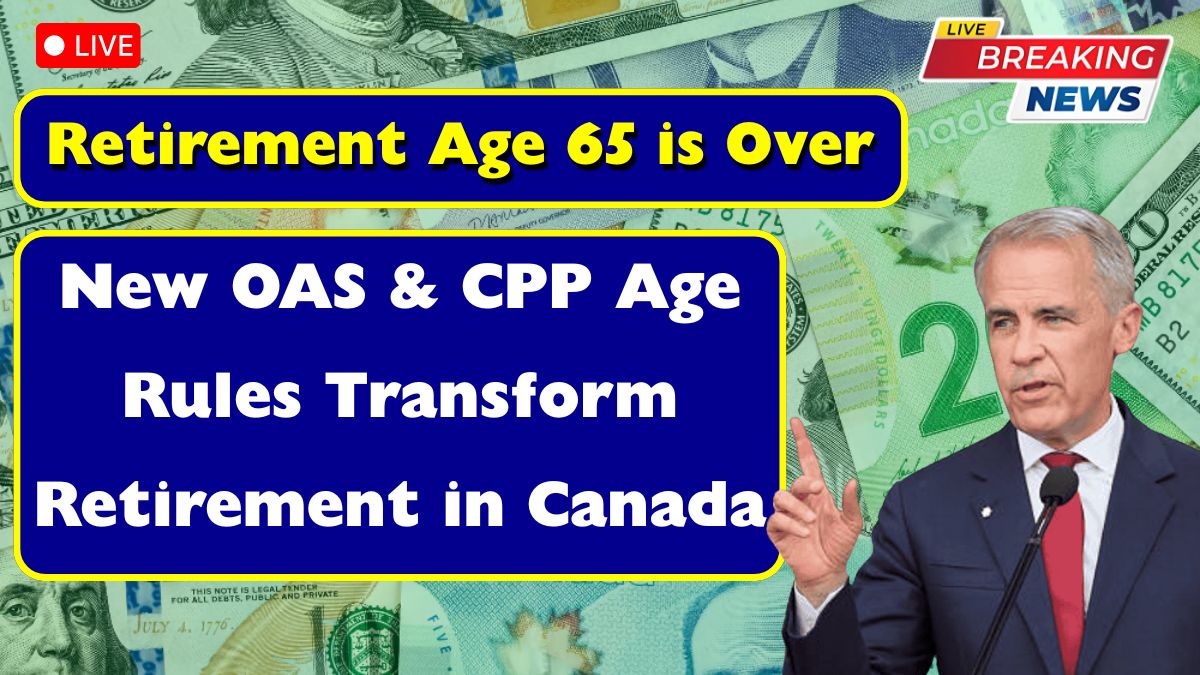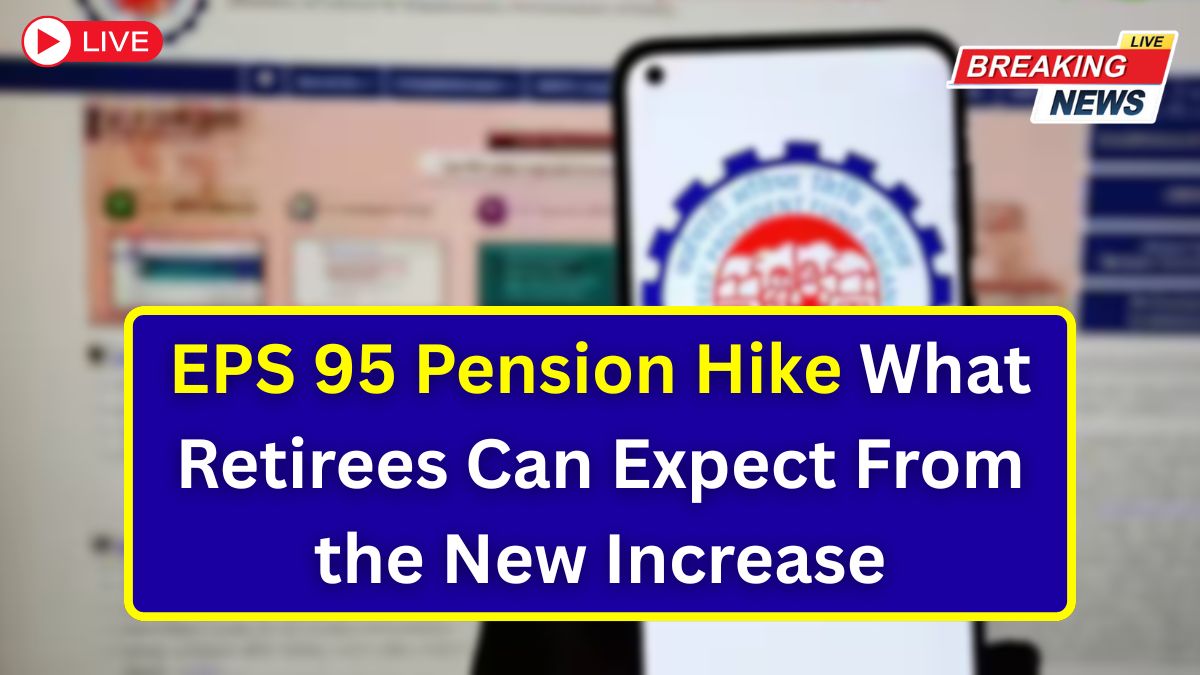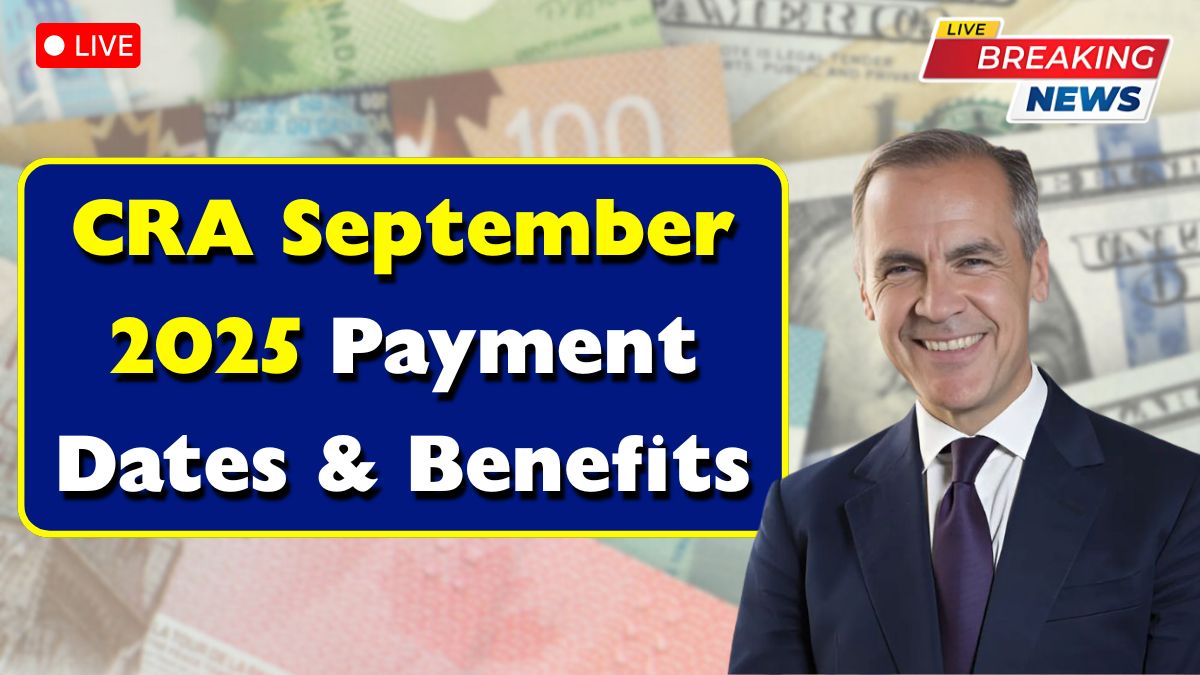Retirement Age 65 is Over: For a very long time, people in Canada treated 65 like a finish line. Reach that birthday and suddenly the years of working were supposed to turn into pension cheques and a calm life. But in 2025, things don’t look so simple anymore. People are living longer, expenses don’t stop rising, and the government has quietly shaped CPP and OAS in a way that rewards those who wait. Retirement today feels less like a fixed rule and more like a personal journey.
Why 65 Doesn’t Work the Same Way Now
Years ago, when people didn’t live as long, 65 was a fair age to stop working. But now, the average Canadian often lives into their mid-80s or beyond. That’s two or three decades of rent, groceries, travel, medicines, and utility bills without a salary coming in. Living longer is wonderful, but it stretches savings thin and puts programs like CPP (Canada Pension Plan) and OAS (Old Age Security) under extra pressure.
And life is simply more expensive. The cost of housing has soared, groceries eat away at budgets, and even with free healthcare, people pay out of pocket for prescriptions, dental visits, or eye care. Walking away from work exactly at 65 can feel less like freedom and more like trying to solve a money puzzle every single month. On top of this, Ottawa has built CPP and OAS so that waiting longer pays off, making early retirement a tougher choice.
Read more: $680 Extra for Canadian Pensioners in September 2025 – Full Eligibility & Payment Dates
How CPP and OAS Timing Affects Your Cheques
| Age You Start | CPP Monthly Amount* | Change vs. Age 65 | OAS Monthly Amount* | Change vs. Age 65 |
|---|---|---|---|---|
| 60 | Reduced (–36%) | –36% | Not available | N/A |
| 65 | Standard amount | 0% | Standard amount | 0% |
| 70 | Increased (+42%) | +42% | Increased (+36%) | +36% |
If you take CPP at 60, your pension is permanently cut by 36%. But if you wait until 70, your monthly income goes up by 42%. OAS works in a similar way: waiting until 70 means 36% more every month. For people who can continue working or manage their expenses for a few extra years, the reward is hard to ignore.
Could Canada Push Retirement Age Higher?
It’s not out of the question. In 2012, the government even planned to raise OAS eligibility from 65 to 67, before rolling it back in 2016. But the problem hasn’t gone away: the number of seniors keeps rising, fewer younger workers are contributing, and the overall cost of pensions is growing. Countries like the U.S., U.K., and Australia have already moved their retirement ages higher. If Canada faces more financial strain, the debate could easily come back.
Working After 65 Some By Need, Some By Choice
Two decades ago, only about one in ten Canadians over 65 was still working. Today, it’s closer to one in five. For many, it’s about survival keeping up with property taxes, food costs, or rent. For others, it’s not just about money; they stay at work because they enjoy the routine, the social life, and the sense of purpose.
Retirement today looks very different. Instead of a sharp cut-off, more people are taking it slowlymaybe part-time work, consulting, or even small passion projects. The image of sitting in a rocking chair at the cottage for 20 years doesn’t fit everyone anymore.
Retirement on Your Own Terms
The bigger question isn’t whether 65 is the right age. The real question is are you ready? Do you have enough saved up? Do you know what your monthly expenses really look like? Have you planned for the unexpected?
For some, retiring early at 60 is worth it, even if the cheques are smaller. For others, stretching work until 70 feels smarter both for the larger pensions and for the sense of purpose that comes with staying active. Retirement is no longer one official date on a calendar; it’s a personal decision shaped by your money, your health, and what you want out of life.







